#Michal Szlaga
Explore tagged Tumblr posts
Text
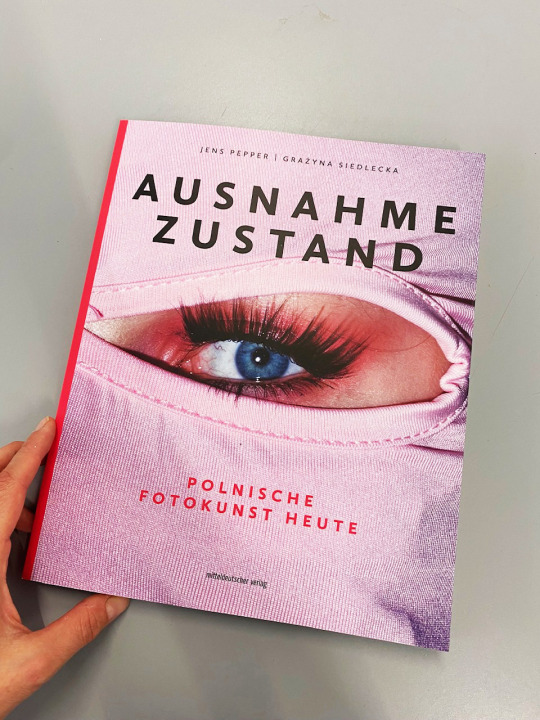
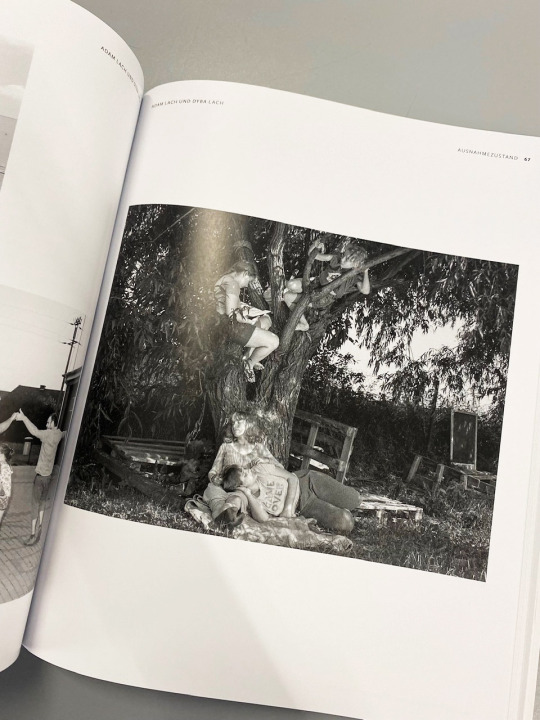
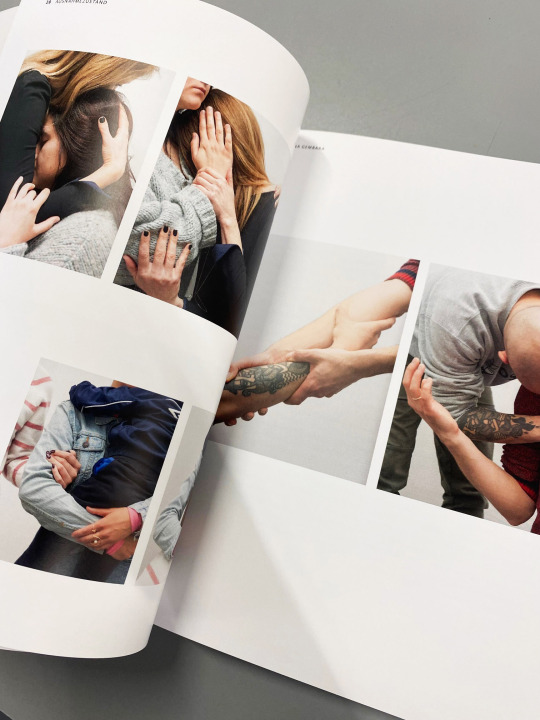
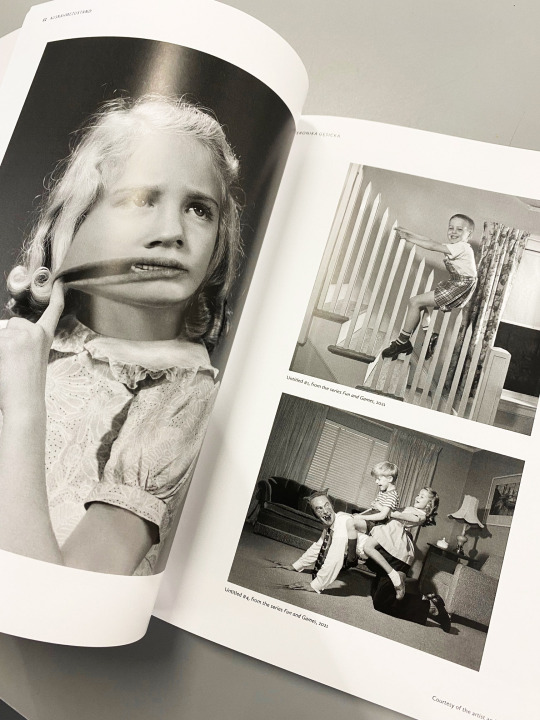
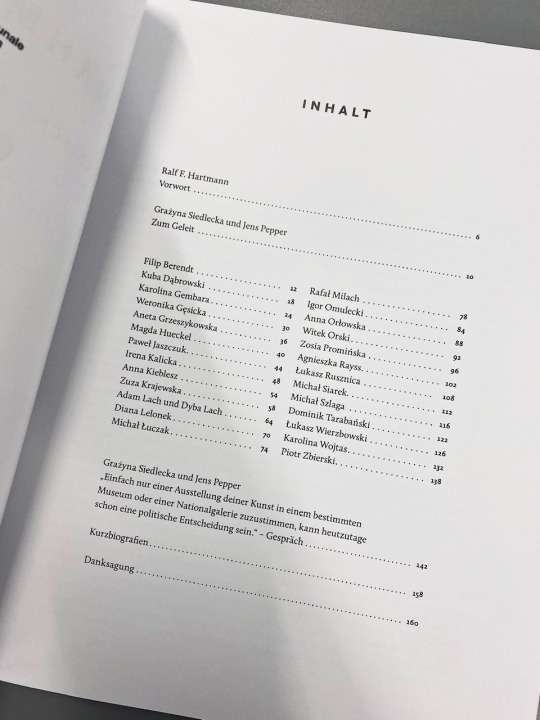
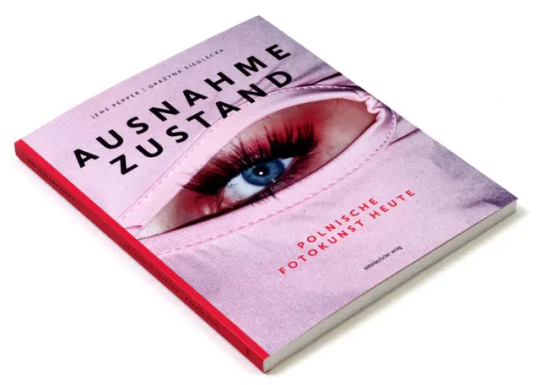
Jens Pepper & Grażyna Siedlecka - Ausnahmezustand catalogue Mitteldeutscher Verlag 2022
German, English & Polish language
Photography from Poland is generally not very well known in Germany, although one of the most exciting photo scenes in Europe has developed in the country. The book accompanying the exhibition of Polish photographic art at Berlin's ZAK – Center for Contemporary Art in the Zitadelle Spandau aims to close this gap in knowledge and shows works by young and middle-aged artists. In addition to many forms of aesthetically and formally fresh documentary photography, the spectrum of what is shown ranges from portrait and self-portrait photography to still life and landscape photography to free artistic approaches in abstraction. On the basis of extensive research and in-depth knowledge, the curators have selected positions that allow a look at all aspects of contemporary life in Poland, while also not ignoring the downsides.
With works by Filip Berendt, Kuba Dąbrowski, Karolina Gembara, Weronika Gęsicka, Aneta Grzeszykowska, Magda Hueckel, Pawel Jaszczuk, Irena Kalicka, Anna Kieblesz, Zuza Krajewska, Adam Lach & Dyba Lach, Diana Lelonek, Michał Łuczak, Rafał Milach, Igor Omulecki, Anna Orłowska, Witek Orski, Zosia Promińska, Agnieszka Rayss, Łukasz Rusznica, Michał Siarek, Michał Szlaga, Dominik Tarabanski, Łukasz Wierzbowski, Karolina Wojtas, Piotr Zbierski
ISBN-13: 9783963117336
Soft cover, 160 pages, format 224×271×17 mm
#ausnahmezustand#catalogue#jens pepper#grazyna siedlecka#publikacation#book#books#filip berendt#kuba dabrowski#karolina gembara#weronika gesicka#aneta grzeszykowska#magda hueckel#pawel jaszczuk#irena kalicka#anna kieblesz#zuza krajewska#adam lach#dyba lach#diana lelonek#michal luczak#rafal milach#igor omulecki#anna orlowska#witek orski#zosia prominska#agnieszka rayss#luaksz rusznica#michal siarek#michal szlaga
3 notes
·
View notes
Text
Lonely Hearts Club Band: an interview with Trupa Trupa's Grzegorz Kwiatkowski

Trupa Trupa by Michal Szlaga. From left: Rafał Wojczal, Wojtek Juchniewicz, Tomek Pawluczuk, Grzegorz Kwiatkowski
Ilia Rogatchevski catches up with the Polish quartet’s front man to discuss Gdansk’s tumultuous history, the films of Werner Herzog and the importance of boredom to the creative process
Trupa Trupa are an art rock band from Gdansk. Fusing elements of post-hardcore, no wave and psychedelia, the four-piece exude a restless energy that bears the hallmarks of Fugazi’s uncompromising punk ethos. Fronted by the poet Grzegorz Kwiatkowski, the band weave absurd lyrics through liquifying guitar riffs, angular bass lines and concise percussion. Repetition plays a key role in their work, as is evidenced by their playful band name, which roughly translates to a troupe of corpses.
Trupa Trupa released their first two albums Headache and Jolly New Songs, through independent labels Blue Tapes and ici d'ailleurs. Both records received international praise. In his Quietus review of the band’s debut, Wire contributor Tristan Bath called Headache ”their first moment of true greatness”.
On the 26 February the band announced that they had signed to Sub Pop, whose label head Jonathan Poneman revealed that he thinks of the band “as a thunderstorm with big gusts, explosions and torrential downpours”. He made the decision to sign them three years ago, but, he says, “it took me a long time to get it done”. Coinciding with the news, Trupa Trupa released the brand new track “Dream About”, with an accompanying video by Norwegian artist Benjamin Finger.
Ilia Rogatchevski: Congratulations on signing to Sub Pop. How did it happen?
Grzegorz Kwiatkowski: Jonathan Poneman, the boss of Sub Pop, was at our gig at OFF Festival in Katowice. He enjoyed the gig and suggested that he would like to work with us. That was six years ago. Through the years we were working hard, but we weren’t working for Sub Pop or anyone else. Of course, we were curious. We knew that it could happen.
The breaking point was when we played SXSW in 2018. The gig was in a small Irish pub. David Fricke from Rolling Stone was there and Robin Hilton from NPR. All these important people came and my amp broke. I asked the stage manager if he had something else, but he didn’t. Suddenly, one person from the audience said: “I’ve got an amp I can give you.”
In 20 minutes we played songs which should be played in 35. The fastest concert ever. We were so angry. Everything was going wrong. The bass player’s guitar stopped working. We kept on playing, but he was shouting with his guitar over his head. These journalists thought: Woah, man! What a band. They are crazy. We are lucky to have strange accidents working on our side.
Is the band a conduit for accidents, then?
We are really open to mistakes. We love absurdity and paradoxes. The band seem a bit dark, but we love to act like clowns. We just wrote many songs with our producer (Michał Kupicz), but we really don’t know if they will be accessible. Let’s see.
youtube
“Dream About”
Benjamin Finger directed the music video for your new song “Dream About”. How did that collaboration come about?
We played with him at a great gig in Cafe Oto in London and became friends. The video looks like hipster stuff from the internet, but it’s his own tapes. We love this kind of atmosphere. It’s very important for us that we are not pretending to be a professional rock band, which makes a professional video. We were afraid that Sub Pop would tell us what to do. Of course, we were wrong. They are totally open to this kind of DIY art.
In a previous interview you suggested that the “spiritual strategy of DIY” is important to the band. Can you define what you mean by that?
You can feel it inside the music that it’s not a PR project. The important thing about Trupa Trupa is that [our] albums are a bit boring. I like to be bored. Our new songs remind me of the atmosphere from Samuel Beckett. Samuel Beckett’s Lonely Hearts Club Band. The time is running. We are waiting. We are observing. It’s a meditative, pessimistic thing.
Samuel Beckett’s Lonely Hearts Club Band. I like that. In the past you’ve cited The Beatles as a core influence. They were very forward thinking for their time, but are now so canonised that we no longer consider them to be experimental. With that in mind, what sets you apart from other guitar bands working today?
Bands as we are, they don’t exist, because they break up after one or two years. But we exist and are more established than ever. Quite unique, I think, is that we are very democratic in our vision. Every one of us has a strong personality. One is a painter, the second one is a graphic designer, the third a poet, the fourth a reporter and a photographer. Every one of us is trying to put his view inside of the band. It’s kind of a competition. We don’t want to [exist] for the audience. The most important thing is ourselves. I know that sounds narcissistic, but we are friends and this music comes from our friendship.
You guys are based in Gdansk. Have you always been there?
We all live in Gdansk, but not all of us were born here. Tomek Pawluczuk [drums] and Wojciech Juchniewicz [bass] came here from Białystok and Skarżysko-Kamienna, respectively, for studies at the Academy of Fine Arts. Me and Rafał Wojczal [keyboard, guitar] are friends from the same neighbourhood. This is our city and I think that it’s got some impact on us, even if we don’t want it. It’s a very special place, for sure.
What aspects of it seep into your work?
It is the history. Gdansk is connected to the Second World War, to the movement of Solidarity. For me, the place called Westerplatte – the place where the war started – was the dream place for a child. It was like a video game.
There is a mixture of many things in the air still. It’s a really horrifying place, even. For example, a few weeks ago our mayor [Paweł Adamowicz] was murdered. The whole of Poland is in big shock. Gdansk is the city of transgression. Big things are still happening here.
There is also big, great nature around us. We love these landscapes. All of us love Werner Herzog movies, for example. It’s a bit connected to the German aesthetic, I guess. On the other hand, we have our inner landscapes and stories, which are not so connected to the city.
It’s interesting that you mention Herzog. In a previous interview you said that “Jolly New Songs” was a Fitzcarraldo moment for you: the band building an opera house in the middle of the rainforest.
Brian Fitzgerald, the main character of Fitzcarraldo, is a hero for me in the same way as Don Quixote. I’d like to be someone and achieve something, but after all I’m a loser. Every day I wake up and think I will be a better man. It’s not that I would like to be the Übermensch. I would like to be a good man, but I would also like to be a good artist who is constructing his strange ideas and objects.
Listening to “Dream About”, I would compare it to another Herzog film: Lesson Of Darkness (1992), which documents the burning of the oil fields in Kuwait after the Gulf War. It’s contemplative and mellow, but very dark as well.
I think you’re right with this example. For me, the new material is the same. It’s pessimistic, naive and slow. You can hear in this song [“Dream About”] that it’s a bit broken. It’s resigned, calm. Almost every [one of our] songs pretends to be a regular song, but they’re really mantras about nothingness. They really are songs of nowhere.
Trupa Trupa will perform three dates at SXSW 2019 on 14, 15 & 16 March, as well Poznań on 26 April and Sharpe Festival, Bratislava, on 27 April.
Ilia Rogatchevski Originally published by the Wire, 26 February 2019
0 notes
Photo

Gespräche über Polnische Fotografie
Jens Pepper, German journalist, in this book brings together thirty very personal conversations with the most important Polish photographers, artists, gallerists, publishers, collectors and curators of recent years.
Interviewees: Krzysztof Candrowicz, Wiktor Dabkowski, Jacek Dehnel, Agnieszka Dwernicka, Alicja Dobrucka, Aleksandra Fedorowicz-Jackowska, Krzysztof Gieraltowski, Lukasz Gorczyca, Aneta Grzeszykowska, Pawel Jaszczuk, Ryszard Horowitz, Magda Hueckel, Grzegorz Kosmala, Zuza Krajewska, georgia Krawiec, Rafal Lewandowski, Rafal Lochowski, Adam Mazur, Katarzyna Mazur, Rafal Milach, Chris Niedenthal, Karolina Puchala-Rojek, Katarzyna Sagatowska, Grazyna Siedlecka, Tomek Sikora, Michal Szlaga, Ilona Szwarc, Marta Szymanska, Wiktoria Wojciechowska, Janek Zamoyski, Pawel Zak
booked published by KLAG VERLAG, Germany, 2017. Soft cover, 318 pages, format 23 x 15,5, ISBN 978-3-943767-39-1
Read more: https://www.klakverlag.de/2017/09/02/gespräche-über-polnische-fotografie-jens-pepper-in-der-collection-regard/
#others#jens pepper#interviews#polish photography#grazyna siedlecka#book#publication#poland#german#krzysztof candrowicz#wiktor dabkowski#jacek dehnel#agnieszka dwernicka#alicja dobrucka#luksz gorczyca#aneta grzeszykowska#pawel jaszczuk#ryszard horowitz#magda hueckel#grzegorz kosmala#zuza krajewska#georgia krawiec#rafal lewandowski#rafal lochowski#adam mazur#katarzyna mazur#rafal milach#christ niedenthal#karolina puchala rojek#katarzyna sagatowska
2 notes
·
View notes

